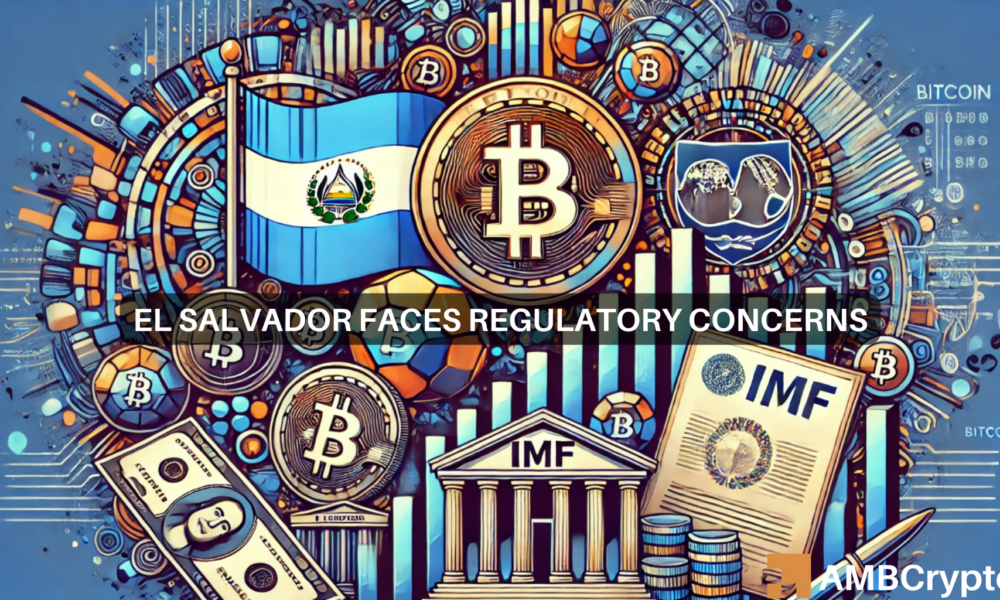- The IMF expressed concern about Bitcoin’s potential to destabilize the country’s financial system.
- The IMF has called for stricter rules on the use of Bitcoin in El Salvador.
El Salvador, the first country to adopt Bitcoin[BTC] as legal tender, is now under pressure from the International Monetary Fund (IMF).
The IMF has urged the government to reconsider its Bitcoin regulations, highlighting the potential risks to financial stability and economic growth. The move comes as Bitcoin remains a volatile asset in the global market.
The IMF has expressed concerns about Bitcoin’s potential to destabilize the country’s financial system. In a recent statement, the IMF warned: “Bitcoin’s volatile nature poses significant risks to El Salvador’s economic and financial landscape.”
The organization has called for stricter regulations on the use of Bitcoin, especially when it comes to interacting with traditional financial systems.
Important points to note
The IMF is particularly concerned about the lack of safeguards against money laundering and financial crimes. According to IMF officials, “strong regulatory frameworks are needed to prevent illegal activities related to Bitcoin.”
They believe that without stricter rules, El Salvador could face increased scrutiny from international financial organizations.
Another major concern is the potential impact on public finances. The IMF noted that Bitcoin’s price fluctuations could harm the government’s ability to manage budget responsibilities.
“Bitcoin’s volatility poses challenges for fiscal policy and debt sustainability,” an IMF official said at a briefing.
The IMF also emphasized the importance of consumer protection. It highlighted the risks of citizens losing money due to Bitcoin’s unpredictable value. “Protecting consumers is essential when dealing with such volatile assets,” an IMF spokesperson said.
El Salvador’s answer
Despite the IMF’s warnings, the government of El Salvador remains optimistic about the potential benefits of Bitcoin. President Nayib Bukele has repeatedly praised Bitcoin as a tool for financial inclusion.
He argues that it could help the unbanked population and reduce dependence on the US dollar. “Bitcoin gives us financial independence,” Bukele recently said in a public speech.
However, the government has indicated that it is willing to address some of the IMF’s concerns. “We are open to dialogue with the IMF,” said Finance Minister Alejandro Zelaya. He acknowledged that adjustments to Bitcoin regulations may be necessary to ensure stability.
Implications for the entire sector
The IMF’s push for regulatory changes in El Salvador could have broader implications for the global crypto industry. If El Salvador tightens its regulations, other countries could follow suit, especially those considering Bitcoin adoption.
“The IMF’s position could set a global precedent,” said one crypto analyst. This could potentially delay Bitcoin adoption in developing countries.
Additionally, stricter regulations could spur innovation in crypto compliance technologies. More startups could focus on developing tools for financial transparency and regulatory compliance.
“There is a growing need for crypto companies to adapt to regulatory pressures,” says a blockchain expert.
In short, the IMF’s pressure on El Salvador could lead to a regulatory shift that will impact the entire crypto ecosystem. Whether this will dampen or accelerate Bitcoin adoption globally remains to be seen.

